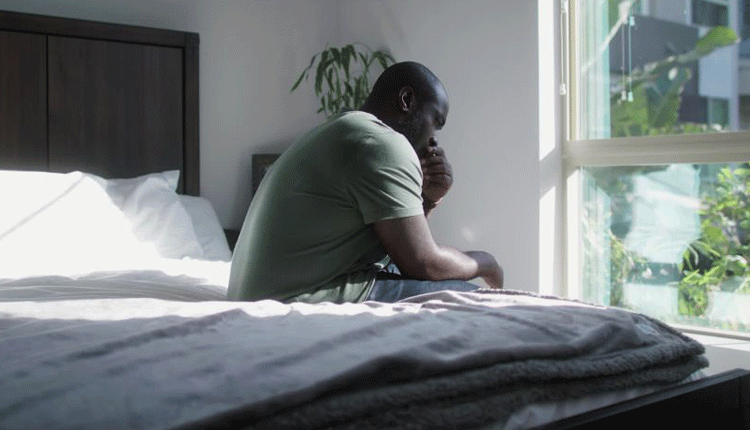Let’s admit it; celibacy is one of the strongest lifestyle choices one could ever choose for themselves

It has been three years since 30-year-old Mombasa-based clinician Stanley Kirui had his last sexual encounter and break-up, and it just seems hard to connect again despite the fact that he is willing.
“I think I must have been out of it for such a long time that I don’t know how to do it anymore.
I am too exhausted to do all the things that girls might want me to do – the romantic things and calling all the time.
Sometimes I forget to call for days. I think I also might be attracting the wrong people and I am not exactly okay with being intimate with them knowing they are not ‘The One’.
I want to have sex… just not desperately bad. If it happens, it will, but if it doesn’t, which there is a chance, then that would not be such a bad thing either,” shares Stanley.
When this state becomes a lifestyle, it’s known as involuntary celibate or incels.
Incels are members of a misogynistic online subculture that describe themselves as being unable to find a romantic partner despite the desire to have one.
The fact that they would like to have sex, but lack a willing partner, makes their celibacy involuntary.
“Although research and statistics show that more men are incels, the truth is, involuntary celibacy can happen to any gender.
Their hatred against women stems from the belief that they are entitled to sex with women.
They blame women for choosing the most attractive men (confident, strong, and well-kempt) over them and thus denying them their rights or chance to get partners and be sexually active.
This makes them view women as uncaring and selfish,” says psychologist Ruth Jebet.
Why be an incel?
While it is unclear what causes involuntary celibacy, research has shown that it could be due to some psychological factors such as body dysmorphic disorder (negative body image), low self-esteem, childhood traumas (victims of sexual abuse), loss of a partner and depression, just to mention a few.
In some, cases, developmental factors such as Asperger’s syndrome that inherently come with difficulties in learning and interpreting of social cues or issues can make them unintentionally asocial.
Some of it could be related to lack of social skills so they are uncomfortable with chit-chat, starting and maintaining a conversation.
“People get to this level because of lack of strong will and low self-image coupled by low self-esteem where a person has allowed what others speak of them to define them, hence deforming their own image and how people see them.
Toxic masculinity, whereby most of them have adopted this notion that they can’t pursue a relationship is also to blame! For others is because of models and idols they look up to.
For instance, when public figures and mentors are incel and are big on it, they will influence many to it.
Also, experiences and treatments from past relationships is to blame,” explains psychologist and relationship coach Allan Lawrence.
While there are all these factors, others may have none of these issues, but are just extremely anxious when talking to girls either from early experiences and or from the fear of rejection leading them to isolate and continue to withdraw from real relationships.
Way out
“The advent of technology has made access to sexual content and opportunities way easier.
Pornography is a click away on a small android device; while Facebook, WhatsApp and Telegram have played a platform for seeking sexual relations leave alone the more dedicated sites such as Tinder that are exclusively meant to make relations of sexual nature easily accessible on a phone swipe.
So, if you find yourself or someone you know has a difficult time connecting with someone in an intimate way, then chances are, they or you could be part of a growing group of adults known as “involuntary celibates,” he says.
Experts argue that as much as it is a lifestyle choice, it is not healthy at all, as it later on affects a person’s relationship with others … a person can only love others to the measure they love themselves. Incels will need psychotherapy and counseling.
The whole process is to help validate the frustrations that come with the desire to be in a romantic relationship with someone, but continually face struggles.
“Another characteristic of many incels is their cognitive distortions. Therefore, Cognitive Behavioral Therapy (CBT), a counselling intervention that focuses on challenging cognitive distortions is the most effective treatment that will help rationalise thoughts and correct the distorted thinking (either about themselves or women) associated with individuals who are incels.
They need to learn to reframe these negative thoughts so that they can get out of this perpetual cycle of anger, self-defeatism, unworthiness, and victim-hood,” says psychologist Jebet.
“Counselling can also be used to help individuals struggling with involuntary celibacy improve their self-esteem, especially those struggling with body dysmorphic disorder (obsessive focus on a perceived flaw in appearance).
Finding someone to help them explore their feelings is crucial. In the end, they might be surprised all they really needed was to learn how to flirt,” she adds.
In addition to this, the relationship coach adds that it is important to surround oneself with the networks that encourage you and show how attractive you are.
Have a safe space and great supportive system. Get a mentor who can walk with you and guide you through.
It is also important to seek counselling services and be ready to walk the journey.












